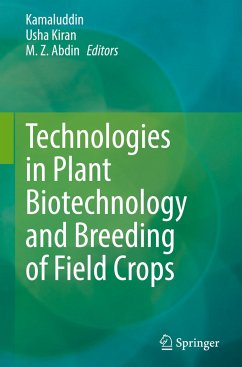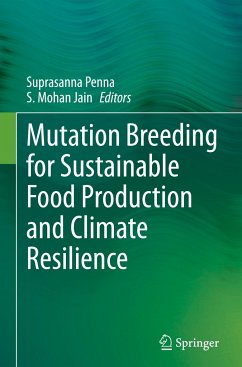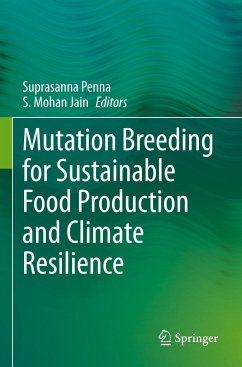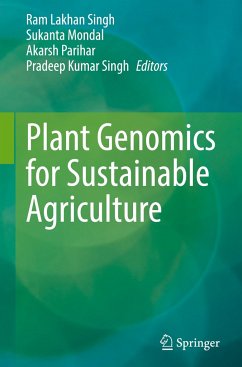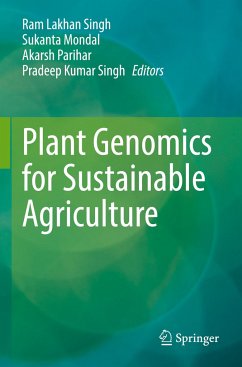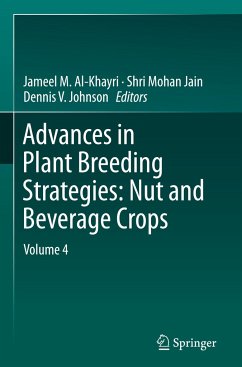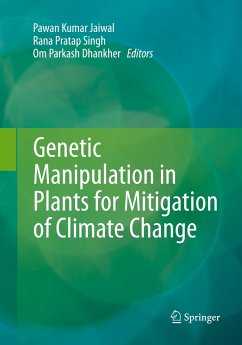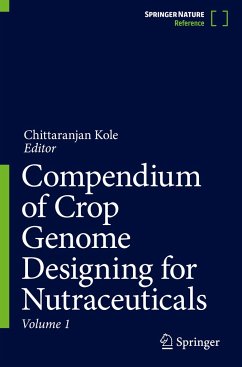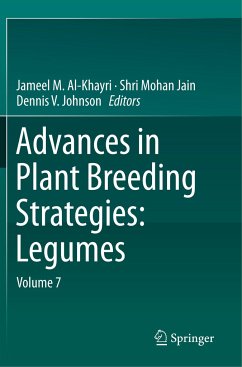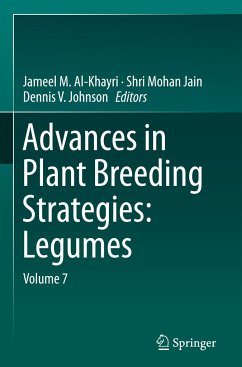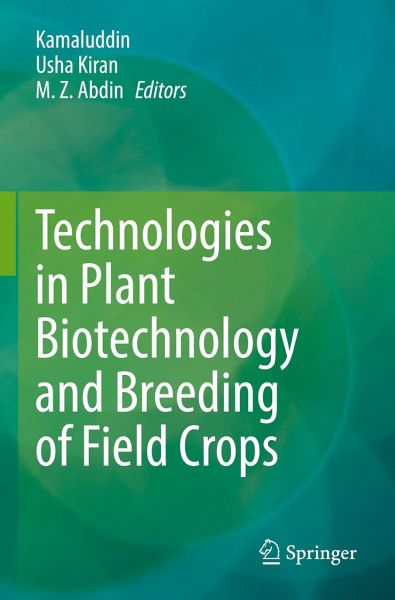
Technologies in Plant Biotechnology and Breeding of Field Crops
Versandkostenfrei!
Versandfertig in 6-10 Tagen
129,99 €
inkl. MwSt.

PAYBACK Punkte
65 °P sammeln!
This edited book is a comprehensive compilation of principles, conventional and molecular approaches used to develop improved varieties and hybrids of major crops in light of their origin, evolution, taxonomy, production and productivity and need by human civilization. The book covers breeding prospects of all important food and commercial crops. It highlights the importance of breeding tools and techniques in ensuring food security. This book is of interest to teachers, researchers, agriculture scientists, capacity builders, and policymakers. Also, the book serves as additional reading materi...
This edited book is a comprehensive compilation of principles, conventional and molecular approaches used to develop improved varieties and hybrids of major crops in light of their origin, evolution, taxonomy, production and productivity and need by human civilization. The book covers breeding prospects of all important food and commercial crops. It highlights the importance of breeding tools and techniques in ensuring food security. This book is of interest to teachers, researchers, agriculture scientists, capacity builders, and policymakers. Also, the book serves as additional reading material for undergraduate and graduate students of agriculture, soil science, and environmental sciences. National and international agricultural scientists and policymakers will find this book useful.



